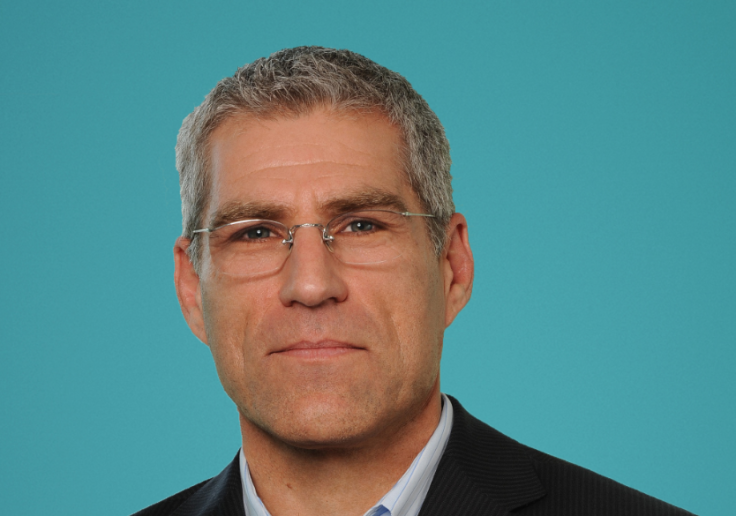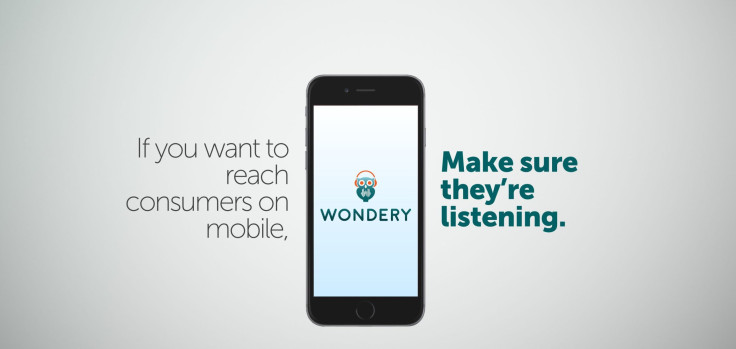Why The Broadcast Veteran Behind ‘Arrested Development’ And ‘Glee’ Ditched TV For Podcasting

Jeffrey Glaser’s TV résumé speaks for itself. During his nearly two-decade career at 20th Century Fox Television, he oversaw such hit shows as “Glee,” “Empire,” “Arrested Development,” “Modern Family,” “New Girl” and “American Horror Story” at the network’s production arm, and guided more than 25 shows to syndication.
All of which makes his latest move that much more surprising. Last Wednesday, Glaser was named president of content at Wondery, a newly launched podcast network funded by Fox. That’s right: A high-ranking broadcasting executive is leaving the profitable world of television for the uncharted territory of podcasting.
Glaser is not the first mainstream media executive to leave an entrenched medium for an upstart one. Companies like Acast and Midroll have been busy luring executives from radio and public media giants like NPR and WNYC. But executives and creatives from visual media are starting to think about the power of the medium, too. AMC and ABC have both produced recap podcasts for their own shows, and last week, Laurence Fishburne and Larenz Tate announced they were making a dramatic podcast about the mob in Chicago.
Glaser and his boss, former Fox International Channels CEO Hernan Lopez, have their eyes on television. That’s partly because it’s the world they come from, but it’s also because podcasting, as a creative medium, is on the verge of a major transformation not unlike the one that occurred while Glaser was executive vice president of programming at Fox.
Glaser spoke with International Business Times from his new office in Los Angeles last week about his familiarity with the medium, what he likes about it and where its next hits will come from. The conversation has been edited for brevity and clarity.

International Business Times: So how long have you been listening to podcasts?
Jeffrey Glaser: I have been listening to podcasts for at least as long as “This American Life” has been on. I’d been a big radio fan from the beginning, after college in the Bay Area, and then in Los Angeles with KCRW. Even maybe before then, there was a show by this radio artist named Joe Frank. He did this series called “In the Dark,” and it wasn’t called a podcast then, it was a radio show, but it was very immersive, very addictive storytelling. Since then, I’ve been listening to audio entertainment for a good portion of my adult life.
IBT: In the time you presided over TV production at Fox, you saw television begin this current creative bloom. Do you expect this to start happening in podcasting too? I think when most people think of podcasting, they think of it principally as two people having a conversation.
Glaser: First of all, you’re right. The vast majority of the type of podcasts that exist are more a combination of interview, first-person narrative storytelling. And there’s great stuff being done. But between “Serial” and a few other things that have more of a narrative structure, there’s more interest in serialized storytelling or sustained narrative that you can follow on a continuous basis, the same thing that’s always worked in the television space.
But I also think that there is something about the medium that is working particularly well now. The thing that strikes me is the intimacy of the experience. There’s something about it that’s so direct. When you go to a darkened movie house, the world kind of closes out. Television is a little bit different because there’s the distractions of being in your home. You can be sort of half paying attention, and we know that many people are multitasking.
I think you have to be open to a little bit of everything. When you go back to what came before television, which is radio dramas, they did a little bit of everything. I think there may be opportunities to do those kinds of programs, whether it’s detective shows, or dramas with similar characters.
But I also think that those of us with enough experience in television to follow that famous William Goldman quote — In Hollywood, “nobody knows anything” — think you have to be open to taking chances. You don’t want to be myopic and say, “That’s not what we do.”
IBT: There’s the advertiser dimension too. How is advertiser interest, and an awareness of who’s listening, going to shape what you make?
Glaser: You know, I haven’t done a deep dive thinking on that aspect. You need a way to pay for these projects, but that’s something Hernan [Lopez] and I have not sat down and had a big discussion about. I don’t want to prematurely try to answer that question. I do think any kind of advertising has an effect on programming, whether it’s what they want to buy into or what they want to make.
There’s a lot of goodwill within advertising toward podcasting. They like the way they’re part of the programming. [Advertising] will be impactful, I don’t deny that. But the first priority is finding those creative voices.
IBT: So let’s talk about those voices. All those years in TV probably helped you build a deep Rolodex. Do you anticipate getting a lot of pitches from those people?
Glaser: Absolutely. I’ve already begun to reach out to a lot of people that I know. Even as I was thinking and talking about taking this job, everybody was excited about it. Not that everyone was saying, “I’m going to come and bring you a show,” but there was a real goodwill and a real interest. I think a lot of people in these creative jobs, they’re attracted to other modes of creativity and other modes of storytelling. There was no[body telling me], “Gosh, that’s a crazy, harebrained idea.” I’ve already had a couple people that come from the television world tell me, “I’m working on something that could work really well.”
I think there are going to be a lot of younger, entry-level writers that look at this as an opportunity.
IBT: Where else do you anticipate casting your net?
Glaser: A couple places. I think about some of the festivals that reach across media. We just missed SXSW, but it’s those kinds of festivals. There’s a National Storytellers Festival in Kansas every year. These are people that have been working at this, whether it’s a passion, or a hobby or a job. It’s a space I would never have known about. It’s really just reaching out to creative colleagues and some of the new media schools and departments that I think we’re not even thinking about.

IBT: Presumably your competitors are going to be on the ground there too. How are you going to close those deals and beat out Wondery’s rivals?
Glaser: The fact that me and Hernan both really understand creative talent and the ways to support creators in their vision. If I learned anything, it’s that you want to be able to guide people and support them. I think that’s something we learned, and also not to be afraid of things that look or feel a little different. Having that basis in the creative space is going to give us a bit of an advantage. Knowing how to support creatives and how best to help develop and create support is really an advantage that we have.
IBT: I thought you were just going to say we’re going to offer them more money.
Glaser: We might do that too. It depends what it takes. Hopefully with the support [of our staff] and the advertising support will create enough of a space that they’re going to get their message out, that they’re going to be seen and heard.
In TV, we talk a lot about breaking through the clutter, and in podcasting you face an issue that is not dissimilar. I don’t know how many podcasts there are, exactly, but there are thousands. There’s everything from the bigger, produced, serialized, the interview shows, and then there’s two people in their bedroom putting things up week in and week out.
That’s one of the other advantages of getting a critical mass. We’ll be able to promote and cross-promote. And people will be able to find something that appeals to them, in the same way that Netflix and Amazon have been so good at promoting their own shows from within. That’s something that as a platform, network, whatever you want to call it, as we successfully grow, we’ll be able to create that larger audience.
IBT: What do you want your first spate of shows to be like?
Glaser: I want them to be good. They have to be quality. If it’s really good, audiences will find it.
© Copyright IBTimes 2025. All rights reserved.





















